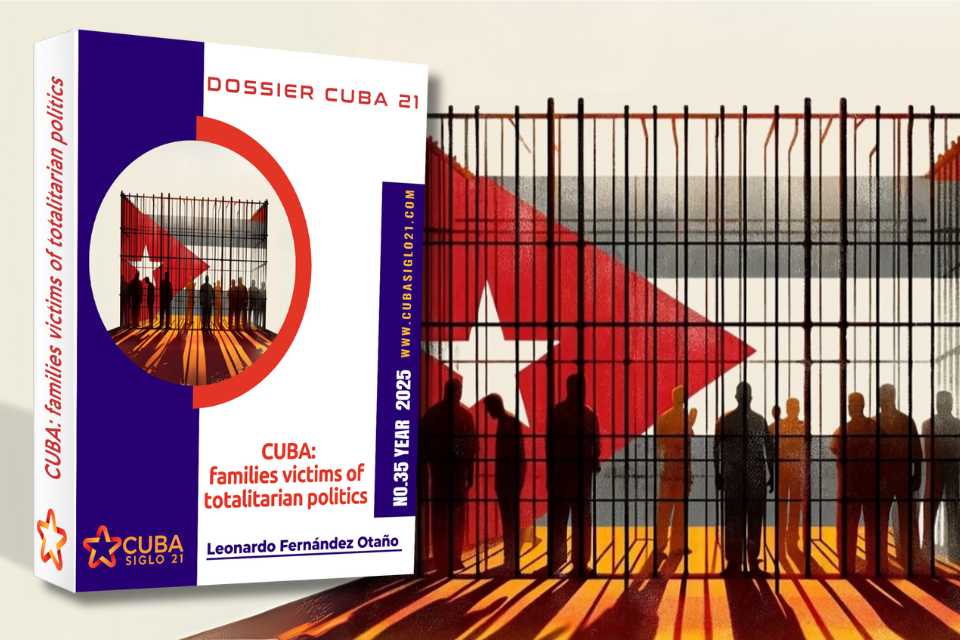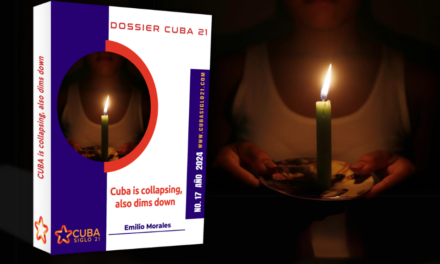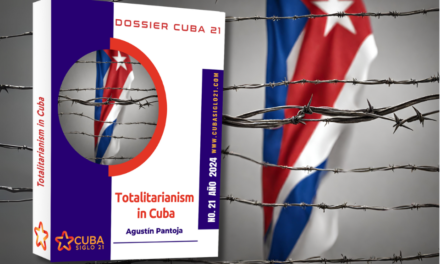Descargar informe en pdf
Download complete report in English
11J: Turning point
July 11 marked a milestone in Cuba’s recent history, with protests by tens of thousands of people in 61 locations across the country. They brought to light the discontent accumulated over years of failed policies, such as the so-called policies of “economic reordering”, uncontrolled inflation, shortages and the collapse of the health system aggravated by the pandemic. The demonstrators -mostly young people between 20 and 35 years of age- demanded rights, better living conditions and political participation, breaking with the official discourse.
Repression and imprisonment
The regime’s response was a wave of repression that included mass arrests, temporary disappearances and summary trials without due process. Between July and September 2021, hundreds of judicial proceedings were held, many for crimes such as sedition or public disorder. This generated an immediate reaction in their families, who began to organize and denounce abuses, breaking the silence imposed by decades of state control.
Social and economic cost
The families of political prisoners have faced a multiplicity of challenges. In the first place, the absence of the main economic providers in the households has forced many mothers, fathers or partners to reorganize their lives to sustain the family economy. In addition to this, the constant shipment of food and medicines to prison, transportation costs to visit the prisoners and the cost of lawyers, which then reached 4200 pesos per trial when in 2021 the average salary was approximately 3,800 Cuban pesos, equivalent to about $16 per month.
This scenario has been aggravated by social isolation. Many families have lost neighborhood support due to fear of stigma or reprisals from State Security. Repression ranges from surveillance and threats to express arrests, public defamation and attacks on social networks, creating an environment of constant insecurity.
Civic evolution of family members
The author identifies a process of progressive politicization of these families, which has developed in four phases:
- Breaking the silence: After the initial shock, family members overcome fear of starting demanding justice, usually from an initially apolitical stance.
- Institutional claim: Families try to exhaust the formal legal channels of the system, facing the ineffectiveness and complicity of Cuban institutions.
- Digital denunciation: They learn to use social networks, especially Facebook, to make their cases visible, share videos and generate national and international pressure.
- Public protest and articulation: Relatives join activist networks inside and outside the country. Movements such as Cuba de Luto or the initiative of the Amnesty Bill promoted by Wilber Aguiar have been key in this process.
Despite their lack of political experience, these families have managed to establish alliances with national and international civil society and keep alive the demand for freedom for political prisoners, becoming symbols of resistance and civic maturity.
“Social death” and silent torture
One of the most dramatic aspects addressed is the so-called “social death”: the systematic marginalization suffered by these families in their community and work environment. Repression is aimed not only at activism, but also at disintegrating affective, labor and social ties, pushing them into isolation.
The psychological consequences are profound. According to the author, at least 40% of those interviewed suffer emotional disorders, including depression, anxiety and nervous breakdowns. The article quotes psychologist José Otoniel Vázquez, who describes how torture affects family dynamics, especially in children, who internalize fear and violence, with lasting consequences.
The situation becomes more critical in households with young children or elderly dependents, as they must deal with the support of several dependents while facing the psychological and economic strain of having a family member in prison.
Conclusion: a collective and inescapable struggle
The 11J was not only a conjunctural event, but the detonator of a social movement that forced families to cross the threshold between private life and public activism. Their struggle has highlighted the systematic use of the judicial apparatus as a tool for political punishment and has exposed the social control strategies implemented by the regime.
At the international level, their denunciations have been echoed in human rights organizations and diplomatic forums. Internally, their actions have contributed to the strengthening of civil society and the support of a democratizing agenda. The unconditional release of all political prisoners is a central and non-negotiable demand for the beginning of Cuba’s democratic future.







